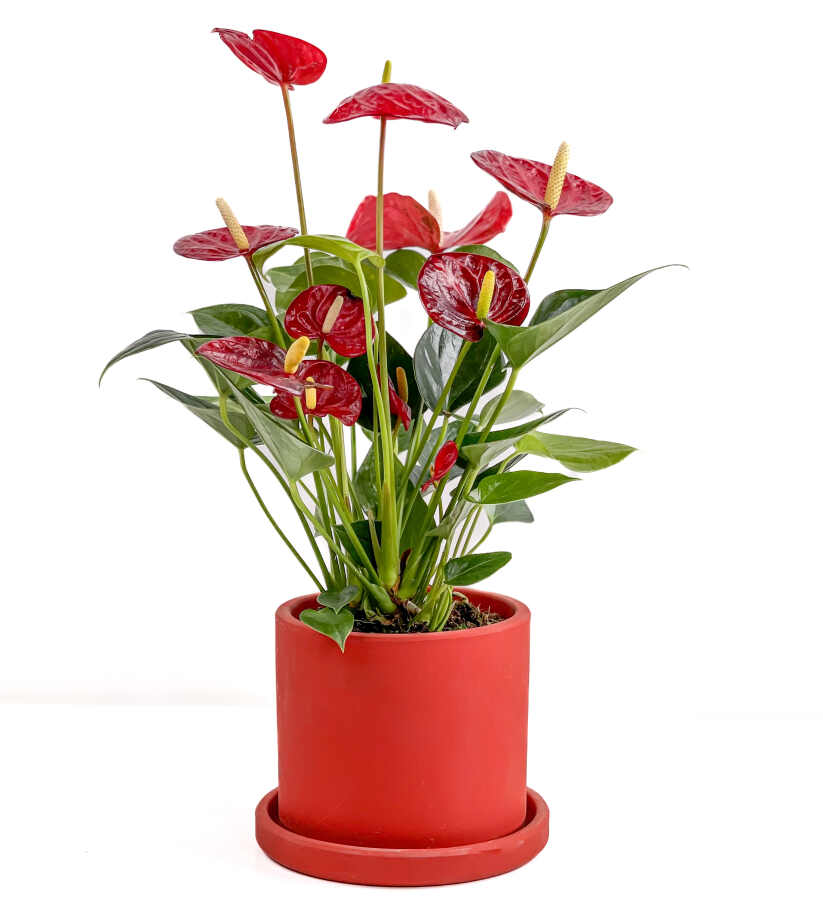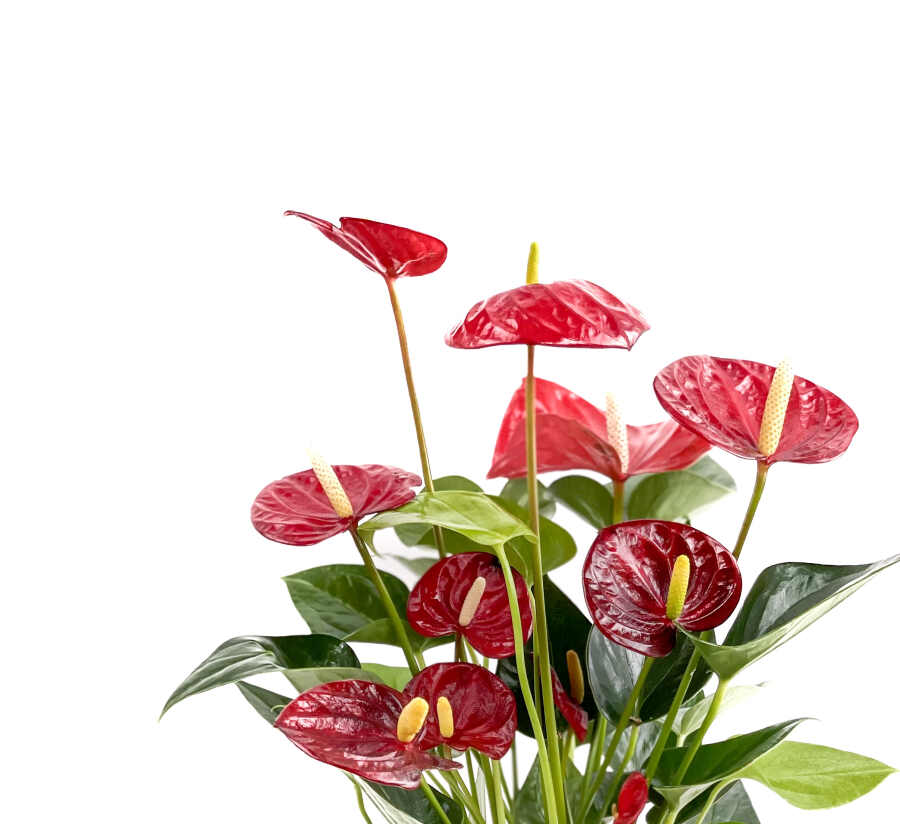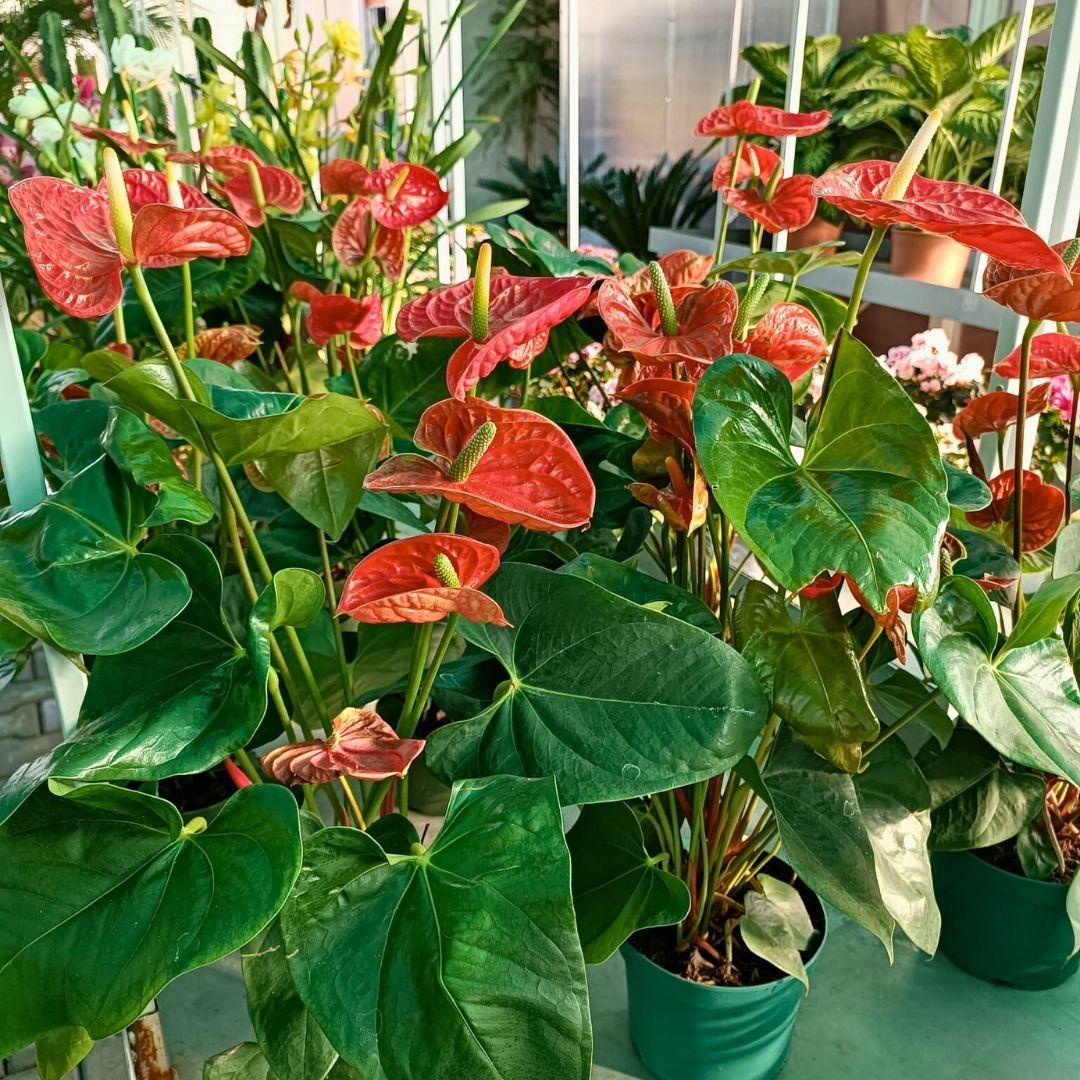How To Care For Anthurium (Anthurium)
How to Care for Anthurium: A Detailed Guide
Anthuriums, also known as Flamingo Flowers or Laceleaf, are prized for their striking, glossy leaves and vibrant, long-lasting flowers. Native to tropical rainforests, they thrive indoors with the right care. Here’s a comprehensive guide to help you care for your Anthurium and keep it thriving.
1. Light Requirements
Anthuriums prefer bright, indirect light. Too much direct sunlight can scorch the leaves and fade the flowers, while too little light can reduce blooming and lead to leggy growth. Place your Anthurium near a north or east-facing window where it can receive filtered light. If you only have access to bright, direct sunlight, use sheer curtains to diffuse the light.

2. Watering
Anthuriums like their soil to be consistently moist but not waterlogged. Water the plant when the top inch of soil feels dry to the touch. Ensure the pot has good drainage to prevent standing water, which can lead to root rot. During the growing season (spring and summer), you may need to water more frequently. Reduce watering in the winter months when the plant’s growth slows.
3. Humidity
Anthuriums thrive in high humidity environments, ideally between 60-80%. If your home is dry, especially during winter, consider using a humidifier or placing the plant on a tray filled with water and pebbles to increase humidity. Regularly misting the leaves can also help maintain adequate humidity levels.
4. Temperature
These tropical plants prefer warm temperatures between 65-80°F (18-27°C). They are sensitive to cold drafts and sudden temperature changes. Keep the plant away from windows or doors that may have cool drafts and from heating or air conditioning vents.
5. Soil and Potting
Anthuriums require well-draining soil that retains some moisture. A mix of orchid bark, peat moss, and perlite works well. Repotting should be done every 1-2 years or when the plant becomes root-bound, ideally in the spring. Choose a pot that is one size larger than the current one to give the roots room to grow.
6. Fertilizing
Feed your Anthurium every 6-8 weeks during the growing season with a balanced, water-soluble fertilizer diluted to half strength. Avoid fertilizing in the fall and winter months when the plant’s growth slows. Over-fertilizing can lead to a buildup of salts in the soil, which can harm the plant.

7. Pruning
Regular pruning helps maintain the plant’s shape and encourages healthier growth. Use clean, sharp scissors or pruning shears to remove any yellow or damaged leaves. Cut off spent flowers to encourage new blooms. Pruning also helps improve air circulation around the plant.
8. Propagation
Anthuriums can be propagated through division. When repotting, carefully separate the roots to create smaller plants, ensuring each division has a healthy root system and several leaves. Plant the divisions in separate pots with fresh, well-draining soil. Keep the newly potted plants in a warm, humid environment until they establish new growth.
9. Pest and Disease Management
Anthuriums can be susceptible to pests like spider mites, aphids, and mealybugs. Regularly inspect the plant for signs of pests, such as webbing, sticky residue, or visible insects. Treat infestations with insecticidal soap, neem oil, or by wiping the leaves with a damp cloth. Ensure proper watering and good air circulation to prevent fungal and bacterial diseases.
10. Leaf Care
Anthurium leaves can collect dust, which can interfere with photosynthesis. Clean the leaves gently with a damp cloth or sponge to keep them looking their best. Avoid using leaf shine products, as they can clog the pores on the leaves.
Conclusion
Anthuriums, with their stunning flowers and lush foliage, can be a captivating addition to your indoor garden. By providing the right light, moisture, and environment, you can enjoy their beauty and blooms for years. Regular maintenance, including proper watering, fertilizing, and pruning, will ensure your Anthurium remains healthy and vibrant. Whether you are a seasoned gardener or a beginner, Anthuriums offer a rewarding and visually captivating plant care experience.
How Can I Properly Care For Anthurium Plants (Anthurium)?
Anthurium plants, also known as flamingo flowers or laceleaf, are popular houseplants due to their beautiful flowers and glossy leaves. Proper care for Anthurium includes providing them with bright, indirect light, well-draining soil, and consistent watering. These tropical plants thrive in warm, humid environments and benefit from regular misting to keep their leaves looking shiny and healthy. Additionally, it is important to fertilize Anthurium plants regularly to encourage flowering and growth. To learn more in-depth information about caring for Anthurium, continue reading below.







